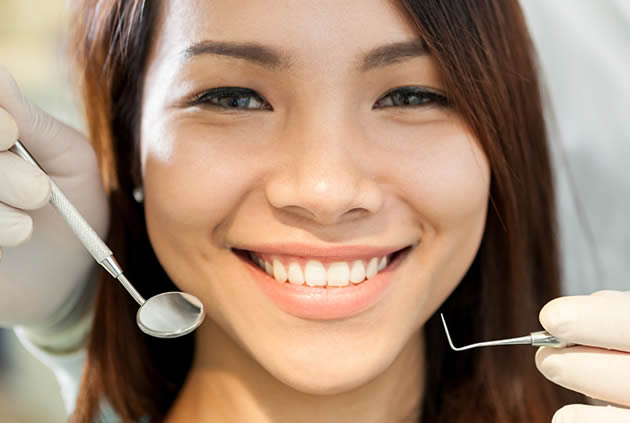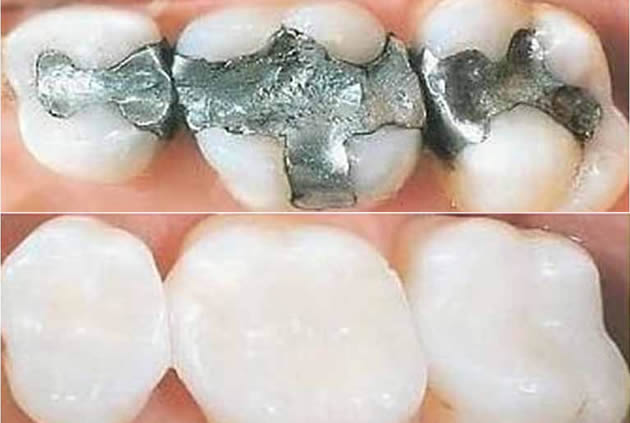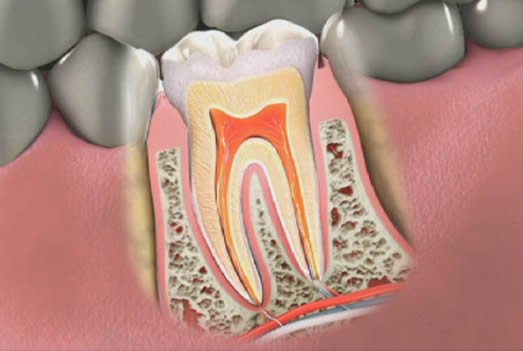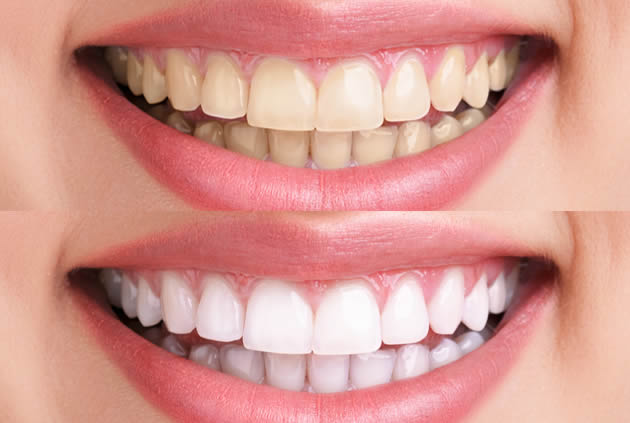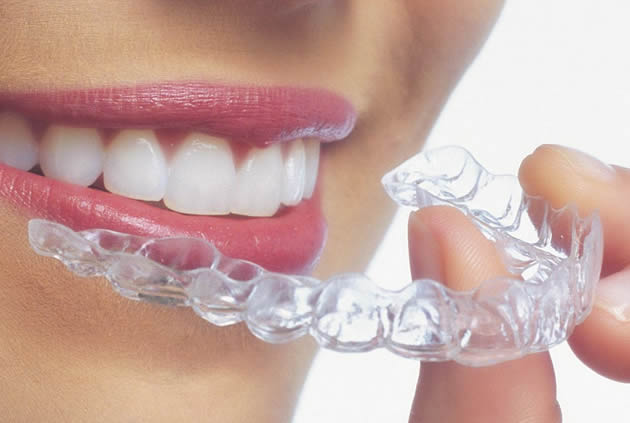
Most people will eventually lose one or more teeth. Even with vigilant oral care, accident or injury can cause the loss of a tooth. As we age, simple daily wear can cause damage to your teeth resulting in tooth loss. More commonly, periodontal disease or tooth decay will cause you to lose one or more teeth.
While you may think one missing tooth, especially one that does not actually show, is not a problem, most dentists recommend immediately replacing a missing tooth. Missing teeth are not only unappealing aesthetically, but also cause problems with your bite and speech. More critically, missing teeth can cause a chain reaction that results in more missing teeth. Because teeth shift to fill the space created by the missing tooth, those teeth become loose and may eventually fall out.
Another problem caused by missing teeth is jaw bone loss. The pressure of tooth roots into the bone cells keeps them from dissolving. If the root is missing, the bone cells die and the bone disintegrates. The loss of jaw bone results in facial collapse, giving you a caved in and much older appearance. Bone loss also causes remaining teeth to become loose and fall out.
One of the best options for replacing lost teeth are dental implants. The placement of dental implants and tooth restorations can prevent the bone loss that results from missing teeth. Not only do dental implants restore the look of your natural teeth, they also provide the function and feel of your original teeth. Dental implants allow you to return to eating and speaking normally, and return your smile to its natural glory. To find out if dental implants are a viable solution to your missing teeth, contact your dentist for an examination and evaluation. With dental implants you can restore the look, feel and function of your natural smile.
We treat patients from Baltimore and the surrounding area

People are talking about dental implants. They’re talking about what a secure, longterm solution they are for patients with missing teeth and how successful they are for dental patients of all types. Are you wondering if you’re a candidate for dental implant treatment? The answer is yes, you probably are!
The one factor that’s a must for being a dental implant candidate is that you must have a missing tooth. The AAOMS (American Association of Oral and Maxillofacial Surgeons) estimates that as many as 70% of all adults have lost a minimum of one adult tooth. If you are among this group and you have a missing tooth, you’re a candidate for dental implants. Some patients are better suited to this particular treatment, however, so making an informed decision regarding your particular tooth replacement is vital.
The healthier you are, the more successful your dental implant surgery will be. Some health conditions and diseases should be strongly factored into whether or not dental implants are the best tooth replacement option. Patients with the following conditions may experience difficulty in the fusing of implant and bone:
- Smoking
- Cancer
- Radiation to the jaws or face
- Diabetes
- Drug or alcohol dependency
- Acute gum disease/periodontitis
Typically, a tooth is lost due to an accident, tooth decay, advanced gum disease or a failed root canal treatment. Even though the cause of the tooth’s loss might be through poor oral health, the healthier your mouth and surrounding teeth are, the more successful a dental implant will be.
Because the health of the bone is directly related to the strength of the fusion of the bone to implant, patients with healthier bones will have more successful experiences with dental implants. Maintain a diet high in calcium and other bone-nourishing nutrients and drink plenty of fluids.
We look forward to seeing you in our Baltimore dental office
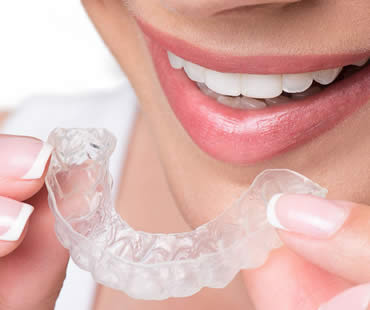
Does your child need braces, but isn’t sure about being a “metal mouth” for two or more years? Did your teen come to you and beg for some other option to traditional braces? Perhaps you’ve heard about Invisalign aligners but are wondering if they’ll work for your child. Invisalign is absolutely appropriate for your teen if all of his or her baby teeth have fallen out and adult teeth have erupted.
Invisalign provides the same results as traditional metal braces, but without the metal brackets. Concerns over eating with braces are removed with the Invisalign trays, as they come out for meals, leaving your teen free to eat any food he or she desires.
Invisalign utilizes clear plastic trays that allow the process of straightening your teen’s teeth to be less obvious and less obtrusive. Beginning with x-rays and molds, your orthodontist will make a series of trays, called aligners. These trays are worn most of the day, taken out only to eat or to be cleaned. The process of straightening happens gradually and comfortably.
It is essential during this time that the trays are worn as recommended by the orthodontist. Wearing them less than the recommended amount of time will result in slower correction, and has the potential to lengthen treatment. Have your teen continue with any established good oral hygiene habits. Brushing and flossing must continue on a regular basis, brushing twice a day at minimum and flossing before bedtime.
Being a teenager is full of difficulties, and it is during this time that teens are at their most self-conscious. Adding metal braces to this transition can make everything worse for your child, leaving him or her self-conscious about eating with friends or smiling, talking or laughing in public. Your teen’s gapped, misaligned or crowded teeth can be improved significantly with Invisalign trays. Talk to your orthodontist today to see how Invisalign can make a difference for your child.
Our dental office is located in Baltimore
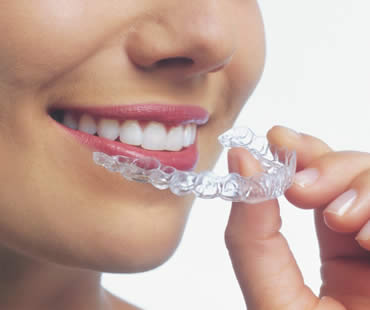
Does your child need braces, but isn’t sure about being a “metal mouth” for two or more years? Did your teen come to you and beg for some other option to traditional braces? Perhaps you’ve heard about Invisalign aligners but are wondering if they’ll work for your child. Invisalign is absolutely appropriate for your teen if all of his or her baby teeth have fallen out and adult teeth have erupted.
Invisalign provides the same results as traditional metal braces, but without the metal brackets. Concerns over eating with braces are removed with the Invisalign trays, as they come out for meals, leaving your teen free to eat any food he or she desires.
Invisalign utilizes clear plastic trays that allow the process of straightening your teen’s teeth to be less obvious and less obtrusive. Beginning with x-rays and molds, your orthodontist will make a series of trays, called aligners. These trays are worn most of the day, taken out only to eat or to be cleaned. The process of straightening happens gradually and comfortably.
It is essential during this time that the trays are worn as recommended by the orthodontist. Wearing them less than the recommended amount of time will result in slower correction, and has the potential to lengthen treatment. Have your teen continue with any established good oral hygiene habits. Brushing and flossing must continue on a regular basis, brushing twice a day at minimum and flossing before bedtime.
Being a teenager is full of difficulties, and it is during this time that teens are at their most self-conscious. Adding metal braces to this transition can make everything worse for your child, leaving him or her self-conscious about eating with friends or smiling, talking or laughing in public. Your teen’s gapped, misaligned or crowded teeth can be improved significantly with Invisalign trays. Talk to your orthodontist today to see how Invisalign can make a difference for your child.
We treat patients from Baltimore and the surrounding area
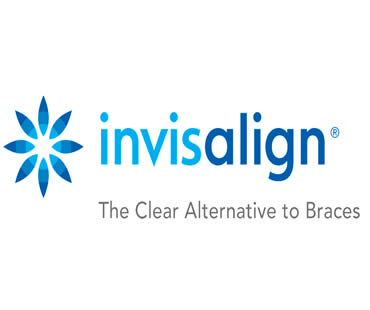
Being a teenager can be difficult, and being a teen whose smile could use some improvement can be even more difficult. If your teen suffers from gapped, crooked, crowded, or misaligned teeth, you may be looking into Invisalign with your teen’s orthodontist as a smile solution.
In the past, metal braces were the standard for teens, leading to “metal mouth” smiles and the worry that food is caught there during lunch or after snacks. Metal braces can lead to even more self-consciousness for your teen. Using Invisalign will lead to the same results as traditional metal braces. While metal braces use wires and brackets to straighten teeth, Invisalign uses clear plastic trays, allowing your teen’s process of tooth straightening to be less obvious.
The Invisalign process begins with impressions and x-rays, providing valuable information regarding the current condition of your teen’s teeth. The mold made from the impressions serves as the reference for creating the custom-made Invisalign trays. A series of trays are used, gradually altering the teeth, leading to a more comfortable straightening process.
Invisalign trays are removed before eating, eliminating the trepidation associated with eating in public with traditional metal braces. Because there is no hardware to dislodge, there are no food restrictions, and your teen may continue to enjoy whatever foods desired.
Your teen will need to have good oral hygiene habits. Flossing once a day and brushing after mealtimes or at least twice a day is best. Invisalign trays are removed prior to these activities, allowing for an ease of oral care not provided by traditional braces.
Be sure your teen wears the Invisalign trays as recommend by his or her orthodontist. In order to maximize Invisalign effectiveness, your teen must wear the trays at all times, except during mealtimes or when brushing or flossing.
We look forward to seeing you in our Baltimore dental office

Some patients wonder if dental implants are the best choice for their missing teeth. The time and effort dental implants take can be off-putting to some patients. If you’re wondering if dental implants are really worth it, there are many factors for you to consider.
Dental implant treatment takes a relatively long period of time to complete as well as to completely heal when compared to other tooth replacement options, such as a bridge. The planning process is far more involved than in other missing tooth replacement plans. The materials utilized with dental implants take more time to create in a dental lab and require greater skill and attention than other lab-created tooth replacements.
Dental implants are much stronger than other tooth replacement options, and will last years or even decades longer. When compared to a dental bridge which lasts an average of 14 years, a dental implant can last up to 30 years.
Sometimes, if insufficient bone is present to provide the necessary support for the implant, bone from elsewhere in the body might be grafted onto the existing bone. A dental implant must heal completely before any pressure is put on the new artificial tooth roots. This can take up to three months. After this time, the tooth portion of the dental implant is applied.
Dental implants are the strongest, best choice for a patient with a missing tooth. They rarely fracture and never decay. As opposed to a dental bridge that necessitates the removal of some of your natural tooth structure, a dental implant preserves adjacent teeth and allows patients the most natural, ideal choice for tooth replacement.
Dental implant candidates who are willing to be patient and plan for the future can experience the benefits these restorations have to offer. Talk to your dentist if you want to explore your options for replacing one or more missing teeth.
We look forward to seeing you in our Baltimore dental office












